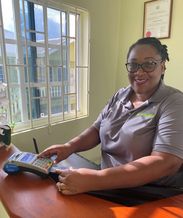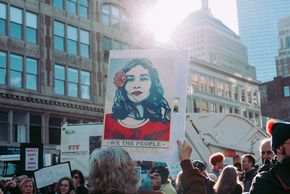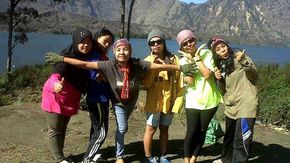Research on the general ability of tourism to reduce poverty and inequality has led to mixed and sometimes contradictory results. However, social entrepreneurs and initiatives from Cambodia, India, Nepal, and South Africa have shown that targeted measures can yield success in creating opportunities for marginalised groups.
2023 marks the mid-term of the 2030 Agenda and the Sustainable Development Goals, which were adopted by United Nations member states in 2015 and are to be achieved by 2030. On this occasion, United Nations Secretary-General António Guterres warns that “Halfway to the deadline for the 2030 Agenda, we are leaving more than half the world behind”. There have been setbacks also with regard to SDG 10—reducing inequality. ”Inequalities are at a record high, and growing”, Guterres said.
Before the COVID-19 crisis, there had at least been a positive trend, as the incomes of the poorest people rose faster than national averages. However, the impacts of the pandemic and uneven recoveries in different parts of the world threaten to reverse this trend. In addition, global impacts of the war in Ukraine and price increases for energy and food affect different groups differently. According to the United Nations' Sustainable Development Goals Report 2022, "The pandemic has also exacerbated structural and systemic discrimination". Roughly one in five people have experienced discrimination because of their ethnicity, age, gender, disability, religion or sexual orientation.
Education – key to equal opportunities
To reduce inequality, the concept of "inclusive growth"—economic development coupled with equal opportunities—is advocated. It entails the need to create employment opportunities specifically for marginalised groups. Haven, a social enterprise in Siem Reap, Cambodia, provides an example of how this can be done. The training restaurant prepares socially disadvantaged young people who grew up as orphans for the labour market. With a solid 16-month vocational training, it enables them to start their careers as qualified service or kitchen staff in the hospitality sector.
Relying on strengths, ensuring market access
For the non-governmental organisations Sasane in Nepal and !Khwa ttu in South Africa, too, training is the key to the much-needed career opportunities for people who would otherwise hardly get a chance, because of their fate, adverse circumstances beyond their control, or as members of an indigenous group. The NGOs specifically focus on their trainees’ strengths. As survivors of human trafficking, the women working with Sasane have been through terrible ordeals. However, they are very familiar with the region where they grew up and as tour guides they are well equipped to share the culture and nature of their mountain villages. The indigenous San working with !Khwa ttu use their skills and knowledge of their cultural heritage to design the products and services they want to offer to tourists.
In India, the social enterprise Open Eyes works with the NAB India Centre for Blind Women & Disability Studies, which trains blind women as massage therapists, relying on their well-developed sense of touch. As a tourism company, Open Eyes secures placements for these qualified women with tourism providers, thus improving their market access and raising their income. Open Eyes also cooperates with the Chhanv Foundation, an NGO working for the rehabilitation of acid attack survivors. The Chhanv Foundation runs "Hangout Cafés" in Lucknow and Agra, which also provide space to raise awareness of their "Stop Acid Attacks" campaign. In Agra, tourists mainly come to admire the beauty of the Taj Mahal. When visiting the café on a Solidarity Action Tour organised by Open Eyes, they also get confronted with the ugly reality of violence against women in Indian society.
Raising awareness
Survivors of acid attacks often suffer from social exclusion. The sluggish judiciary and lack of actual punishment of the offenders prevent many women from taking action against the perpetrators and from raising their voices in public. Open Eyes calls their café a "space of hope and self-improvement". "In the programme, these women are presented as strong survivors and not as victims, which is also how the women see themselves," expert Dietmar Quist wrote in his award rationale for the TO DO Award Socially Responsible Tourism, which Open Eyes received in 2019 from the Institute for Tourism and Development. For Dietmar Quist as a guest, the visit was a positive experience: "The first moment of shock will be more than compensated for by the energy and vitality and laughter of these women.”
Open Eyes makes use of the opportunities offered by tourism as an interface to build contact between tourists and people who successfully assert their legitimate claim to social participation against all odds. The guests not only ensure employment and income for marginalised people, but also gain awareness of social injustice issues through touristic programmes. They do not just receive a simple service, but also learn a lot about problems and solutions in the society they visit. And what's more: Like the companies, they, too, become part of the solution.
Turning the tide
However, to turn the tide and get the world "back on track" with regard to SDG 10, much more effort is needed, also in tourism. Social enterprises can show in an impressive manner how to facilitate social participation. However, in order to achieve a broader reduction of social inequality, many more initiatives of this kind are needed in all sub-sectors of tourism. This also applies to companies that have so far not prioritized the promotion of social change in line with the 2030 Agenda. Some companies are already taking first steps in terms of corporate social responsibility. They, too, could significantly strengthen their commitment to the common good. Until, as Claudia Brözel, professor at the University of Applied Sciences in Eberswalde, put it in our interview in this issue, "impact becomes an integral part of the business model" on a larger scale.


![[Translate to english:] Person mit braunem Karton mit Aufschrift](/fileadmin/tourismwatch/_processed_/f/7/csm_cody-pulliam-GGKVGSkKIzM-unsplash_2__31a1ef84d6.jpg)



